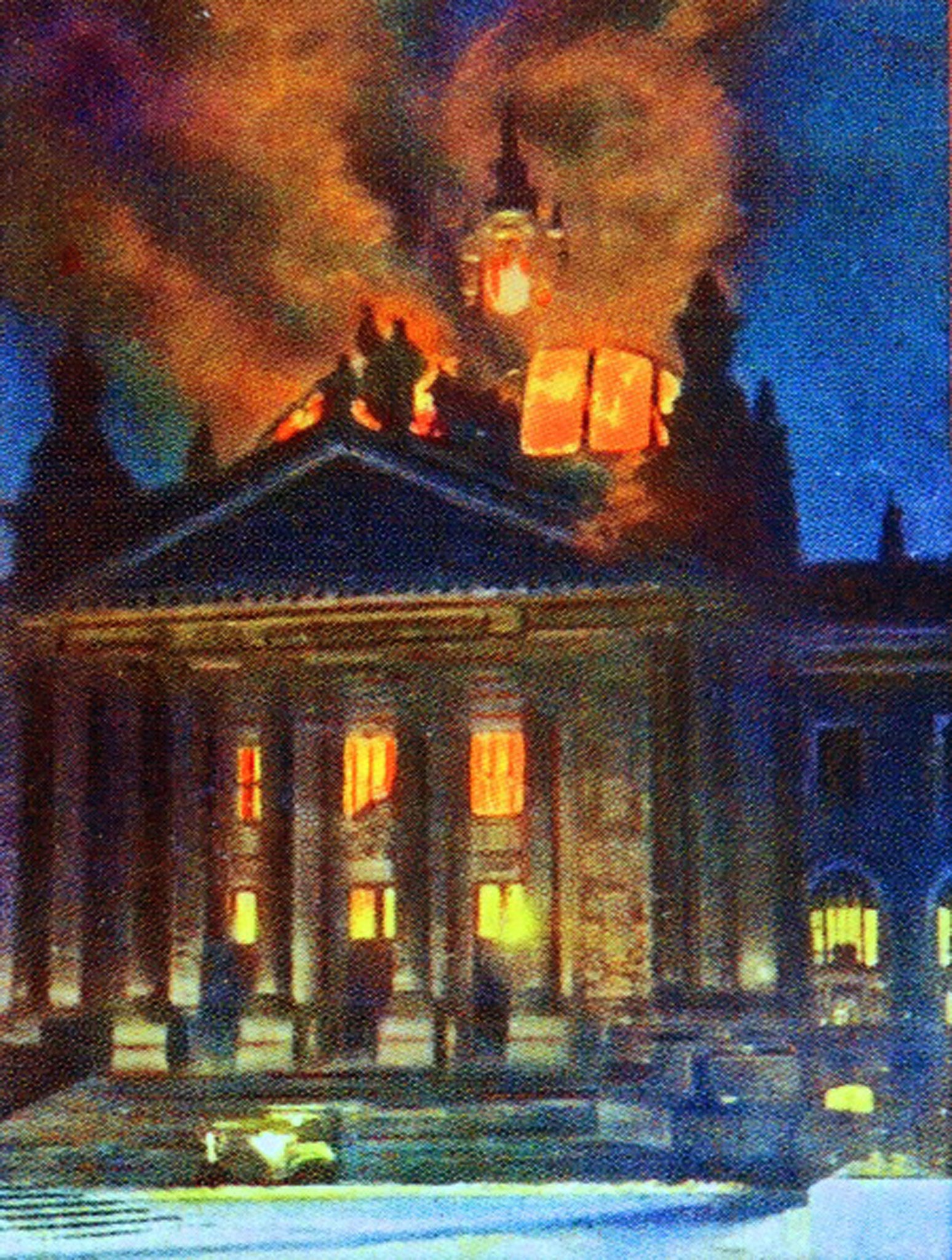Burning the Reichstag by Benjamin Carter Hett, book review

Who set fire to the Reichstag on or around 9.16pm on 27 February 1933? Hitler had been Chancellor of Germany for a month, a minority partner in a coalition dominated by aristocratic mates of the venerated President Hindenburg.
These men were unlikely simply to hand the Nazis absolute power. The Nazis needed a crisis for that. The fire gave Hitler his chance – it was claimed to be the start of a Communist revolution. He got Hindenburg to sign an emergency decree that suspended every human right in the Weimar constitution: this was, in effect, the legal basis of the Third Reich.
So as an event that helped establish the most violently, bestially destructive regime in human history, the fire matters. In its way, though much more momentously, it is a German counterpart to the JFK assassination in America – a national trauma that endless conspiracy theories and bitter controversies about a 'sole culprit', driven by trauma.
There are three competing explanations for the fire, forensically examined by lawyer-historian Benjamin Carter Hett in Burning the Reichstag. The easiest to dismiss is the Nazis' (possibly sincere) claim that a Communist uprising was imminent. This was nonsense. First, Stalin, leader of world Bolshevism, had no interest in it, wanting to cosy up to Germany even under Hitler (a misapprehension that was to persist until Barbarossa in 1941). Second, Stalin’s local representatives clung pathetically to the Marxist notion that they could just sit back and wait for their revolution.
True, the only person definitively linked to the fire, its self-confessed principal arsonist, Marinus van der Lubbe, did have a Communist past in his native Holland. However, in his confused testimonies he also said he'd been with Nazis before the fire, had taken his firelighters into the German parliament for “personal” reasons and that it was a protest on behalf of the working class. Was Lubbe, as confused in his politics as Lee Harvey Oswald, the 'sole culprit'? Was he a Communist dupe? Or a Nazi dupe?
A number of respectable historians in Germany have suggested that he acted alone. This suggestion that the the Nazis did not in fact stage the thing is offensive to many, but it need not be. If it was a random event, though fortuitously timed days before crucial elections, that doesn't justify what they did immediately after, let alone the Holocaust or their other crimes against humanity. The Nazis would have concocted another crisis - a staged attempt on Hitler's life being the likeliest scam - to do what they wanted. Certainly, no-one thinks that the German Communist MP Ernst Torgler or the three Bulgarian comintern officials, also arraigned, were guilty. All were acquitted even in this show trial. Lubbe alone was beheaded.
Hett raises again the biggest problem with the “sole culprit” theory; how it was that Lubbe managed to get the vast solid oak debating chamber fully combusted in about ten minutes. There remains no adequate explanation. Despite the efforts of Mr Hett and many others, the embers of the Reichstag fire still glow.
Join our commenting forum
Join thought-provoking conversations, follow other Independent readers and see their replies
Comments